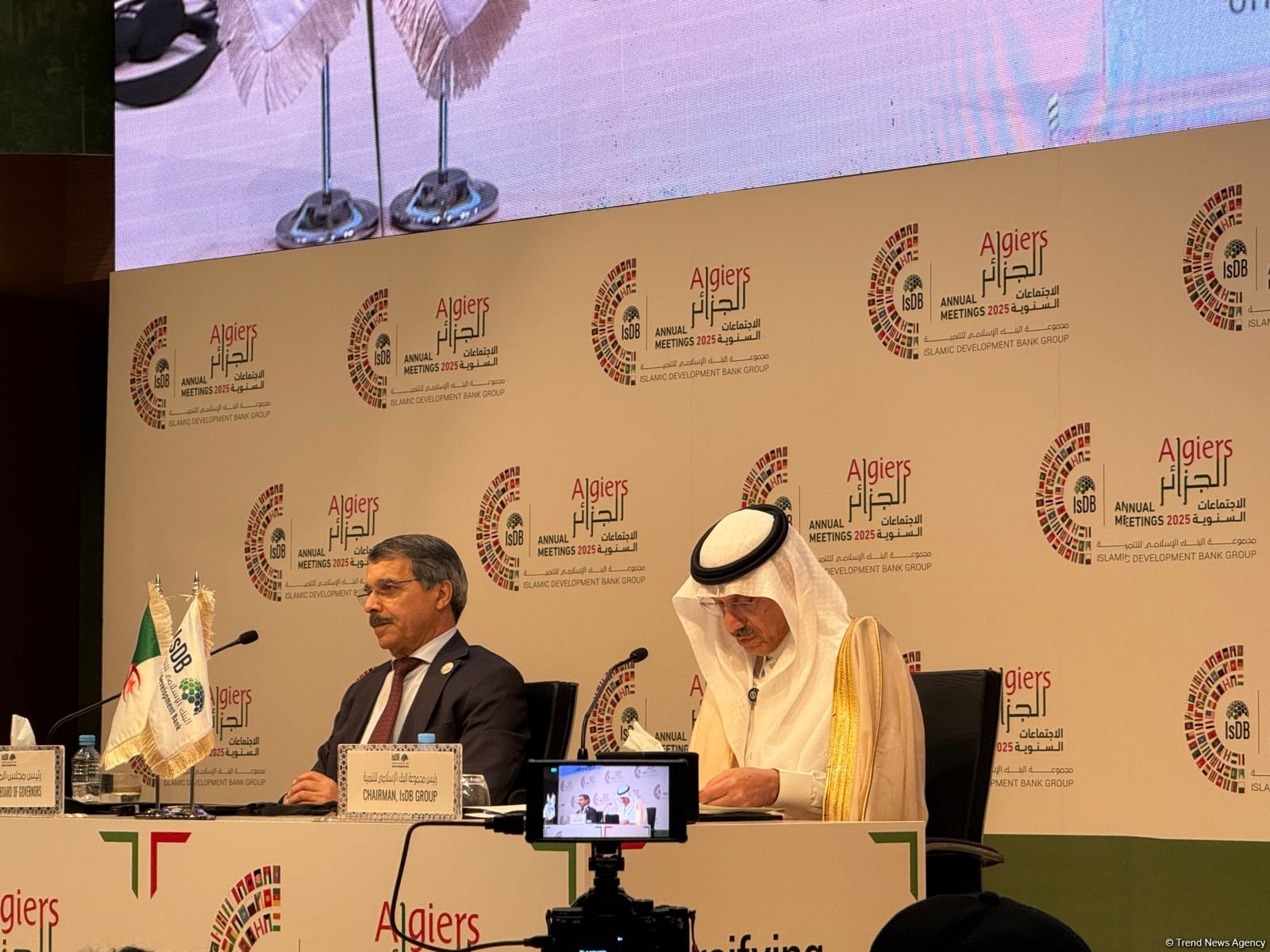ALGIERS, Algeria, May 22. The new Islamic Development Bank (IsDB) strategy is aimed at strengthening the Bank’s role as a reliable partner for the Global South, the chairman of the IsDB Group Muhammad Al Jasser said during a press conference following the Bank’s Annual Meeting in Algiers, Trend reports.
He noted that a series of high-level events took place during the week, including the Private Sector Forum and more than ten side sessions with the participation of leading experts, academics, and sustainable development specialists.
“We organized a number of key events, including the Private Sector Forum and over 10 thematic sessions, attended by thought leaders, academics, and development professionals,” he added.
According to the bank president, more than 4,000 participants from 89 countries and 70 international organizations took part in the meetings.
“These events became an important platform for open dialogue, establishing strategic partnerships, and promoting innovative cooperation in both the public and private sectors,” Al Jasser emphasized.
The official added that the IsDB impacts the lives of nearly a quarter of the world’s population, and its strength lies in its unique identity based on the values of Islamic solidarity, justice, and mutual trust.
“We are a development bank from the South and for the South. Our strength lies in our identity, in our Islamic values such as solidarity, justice, and trust,” he stressed.
Al Jasser also stated that during the meetings in Algiers, the Board of Governors approved IsDB’s new strategic development framework for 2026–2035.
“The approved strategy is designed to strengthen IsDB’s role as a reliable partner for the Global South in a time of global instability and transition to sustainable development. We begin where our member countries conclude — not before, but precisely after them, based on their specific needs,” he explained.
The chairman also drew attention to today’s challenges.
“The current state of global development is undergoing profound changes — from geopolitical tensions and economic fragmentation to digital transformations and climate challenges. This requires urgent reforms that take into account the realities of developing countries, which are in search of new development models,” he concluded.
Stay up-to-date with more news on Trend News Agency's WhatsApp channel







